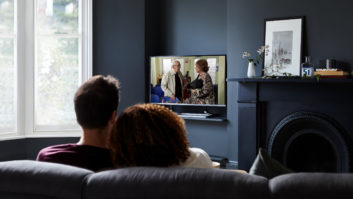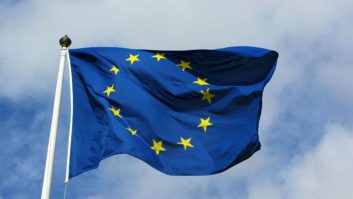During this extraordinary time, the absolute basics of broadcast journalism are being tested. TV journalism is teamwork. People working physically close to each other, on the road, in the studio. Every part of it has to be reimagined.
Here at the European Broadcasting Union, we have a dual role to play – make sure we can continue running our own news operation and help our Public Service Media members deliver reliable, trusted news to their audiences, even in the most testing of circumstances.
The challenge was clear to us from the outset. A colleague in our own organisation was the fourth person in Switzerland to test positive for the virus. We quickly began the transition towards remote working – ensuring we could carry on with business as usual, although there was very little that was usual about it.
Across Europe, we’ve also seen how public service media responded with remarkable speed to the pandemic. By the end of January, we had already put together an international newsroom taskforce, dedicated to coverage of Covid-19. Our members are working together to support each other and ensure citizens across the continent feel supported by them.
We’ve seen the very real damage done by the spread of misinformation and disinformation online about this virus which has made the need for objective, trusted news and information even more important.
There has never been a story like COVID-19 and we learned – are still learning – a lot.
Although every country had a different experience, newsrooms had remarkably similar experiences. This virus with no borders attacked us in very similar ways. As the wave spread across Europe those who experienced it first could provide an uncannily accurate forecast for those it attacked later.
The EBU provides a support network, an early warning system and a place to share ideas. When some members felt they were criticised internally for ‘overreacting’ they just had to look at what their counterparts were doing to know that in a short time their actions would look appropriate and well-prepared.
Our News Exchange is also busier than ever – with travel severely limited, we provide a more important, or sometimes the only, source of foreign news for members. At its peak, we were sharing over 130 Covid-19 news items between our Members every single day.
The pandemic has also shown us the critical need for relevant specialisms in news. Science has always been essential to news output but having the expertise to understand complex health and science issues as well as a strong network of expert contacts is now vital.
Data journalism has come into its own during this period as well and directly influenced the way the story has been reported, the assumptions that have been made and the language used.
Much of the reporting has political and social dimensions as well as purely scientific so enabling better understanding and demonstrating exactly how developments in these areas affect real lives has remained central to the public service remit.
In recent months, we’ve seen an alarming rise in intimidation and attacks on journalists. NOS in the Netherlands were forced to remove all branding from their OB vans as they were encountering threats and intimidation. Members like RTÉ in Ireland have had anti-mask protestors blocking staff from entering or leaving their offices. And many have been subject to online smears and abuse, not only by members of the public but, in the case of Slovenia’s RTVSlo, by other media outlets and senior politicians.
It is the role of PSM to report independently and objectively on current events. We must continue to find ways to hold governments and authorities to account. To step back and see what we are missing.
Serving all audiences on all platforms with clear, accurate and independent information in a variety of formats is crucial to countering fake news and keep people safe in these challenging times. The news needs to provide the answer the public is searching for and to outshine the disinformation which seeks to fill the void.
You can read more on how public service media have handled the Covid crisis across Europe and the lessons learnt in the EBU’s Covid-19 report.







